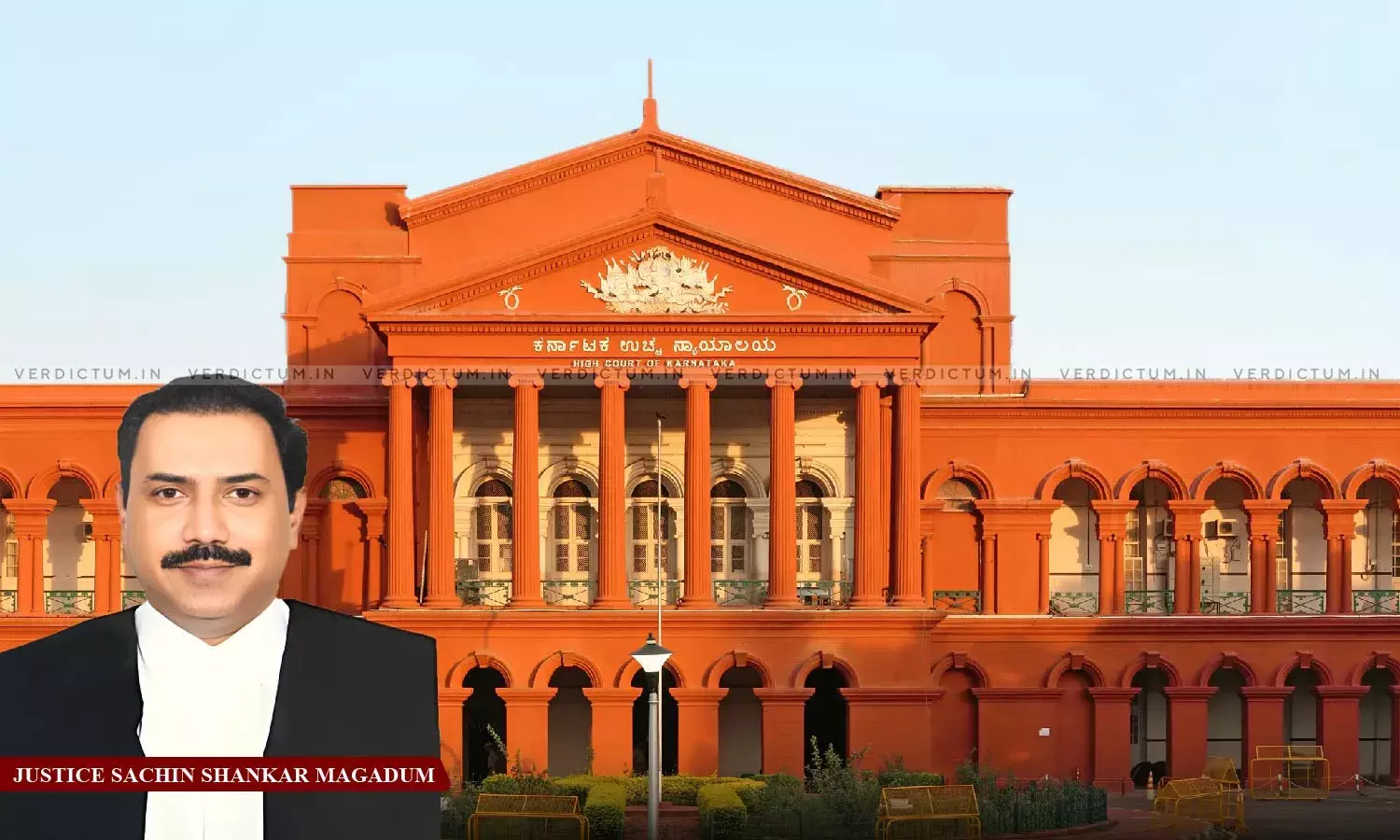Employees Must Receive Enquiry Report Before Any Punitive Action Is Taken In Disciplinary Proceedings : Karnataka HC
The Karnataka High Court ruled that employees are entitled to receive an enquiry report before any punitive action is taken.
The Petitioner, filed the present Writ Petition under Article 226 of the Constitution to call for records about the impugned order passed by the Executive Council and to quash it.
Disciplinary action was taken against the Petitioner, Yogananda A, a professor at Visvesvaraya Technological University by the Governing Council resulting in a recommendation for the petitioner’s compulsory retirement consequently, the Registrar who is the Disciplinary Authority Issued a second show cause notice indicating the inflicting of penalty.
The Present Writ Petition was filed against the order of the Governing council raising concern regarding procedural irregularities and potential violation of Article 311(1) of the Constitution of India.
Advocate Prithveesh M.K. appeared for the Appellant and Advocate Santosh S. Nagarale appeared for the Respondent.
As per the Court, Petitioner challenged the imposition of the penalty of compulsory retirement recommended by the Governing Council and the subsequent issuance of a second show cause notice by the disciplinary authority.
While examining the employee's right to have a reasonable opportunity to refute and offer his explanation to the findings recorded by the Enquiry Officer the Court relied on the decision of Apex Court in Managing Director, ECIL Hyderabad and others vs. B. Karunakar and as according to the Court, SC observed, “…right to show cause against the findings of the enquiry report is considered to be an essential part of a reasonable opportunity incorporated earlier in Section 240(3) of Government of India Act and later in Article 311(2) of Constitution as originally enacted.”
“The Apex Court was of the view that the right to receive the enquiry officer’s report and to show cause against the findings in the report was independent of the right to show cause against the penalty proposed,” the Court stated.
As per the Court, Apex Court while noticing the anomaly before amendment and post 42nd amendment to Article 311 of the Constitution of India observed, “…two rights came to be confused with each other as the law stood prior to 42nd amendment to the constitution. …42nd amendment of constitution dispenses with issuance of notice to show cause against the penalty proposed, held that if the law as it stood prior to 42nd amendment and notice is issued to show cause against the proposed penalty, the right of employee to receive the report and represent against the finding of guilt would be rendered infructuous.”
Hence, according to the Court, it could be gathered from the above-mentioned judgment that before the 42nd Amendment, both the issuance of show cause notice and the commencement of disciplinary proceedings were simultaneous. However, subsequent amendments preclude such concurrent actions and show cause notice must precede by furnishing of enquiry report on the delinquent employee.
In the present case, the Court noted that the Governing Council by recommending to impose a penalty has virtually preempted the right of the Disciplinary Authority to receive an explanation and then apply its mind as to whether this is a fit case to impose a penalty. Therefore, it is evident that the Disciplinary Authority being subordinate to the Governing Council had no discretion to independently evaluate the situation or apply its judgment.
Moreover, the Disciplinary Authority being subordinate to the Governing Council, lacked the autonomy to independence. This lack of discretion compromises the fairness and impartiality of the disciplinary process.
Accordingly, the Court allowed the Writ Petition.
Cause Title: Yogananda A. v. The Visvesvaraya Technological University
Appearance:
Appellant: Adv. Prithveesh M.K.
Respondent: Adv. Santosh S. Nagarale




